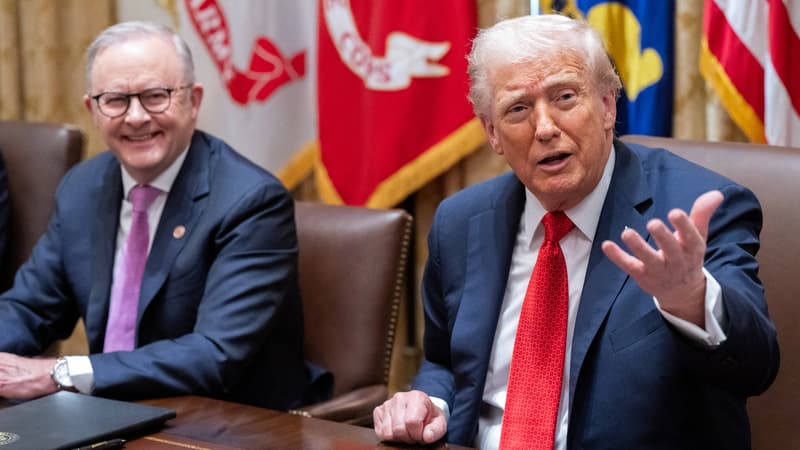Donald Trump reassured Australian Prime Minister Anthony Albanese on Monday during his visit to the United States, indicating that Australia will receive the nuclear submarines it expects and signed an agreement with its ally on critical minerals, hoping to loosen the control of China, which dominates this market.
Praising the abundance of these resources in his country’s subsoil, Anthony Albanese stated that the rare earths agreement would allow projects worth 8.5 billion dollars (7.3 billion euros) in the field of critical minerals in Australia and would take relations between the two countries to the “next level.”
China has a near monopoly on rare earths
According to Australian government figures, the country is among the world’s top five producers of lithium, cobalt and manganese, used in everything from semiconductors and defense equipment to electric vehicles and wind turbines.
China is by far the world’s largest refiner of lithium and nickel and has a near monopoly on processing rare earths. She is accused of taking advantage of her position to pressure her trading partners, which worries Washington. And if Australia is unable to break this Chinese domination, according to observers, it presents itself to Washington as a more reliable ally to reduce its dependence on Beijing.
In October, Donald Trump threatened to impose additional 100% customs tariffs on China in response to its reductions in exports of these rare earths, although he later softened his speech and the two sides agreed to new trade negotiations.
The nuclear submarines that damaged France
The advances are, therefore, underground, but also underwater between the two allies. “The submarines that we are starting to build for Australia are progressing very well,” the US president told reporters alongside Anthony Albanese at the White House, after previously expressing doubts about this agreement signed during the government of former President Joe Biden.
Canberra was seeking assurances on a 2021 pact to arm Australia with US Virginia submarines, stealth nuclear attack vessels that would enhance its long-range strike capabilities in the Pacific, particularly against China. The delivery of at least three units was planned over a period of 15 years, with the added bonus of technology transfer, within the framework of its Aukus alliance (which also includes the United Kingdom). But Donald Trump called in June to review this military cooperation agreement to ensure it is aligned with his policy of defending “America first.”
In 2021, the affair sparked a serious diplomatic crisis with France after Australia canceled a multimillion-dollar contract to buy a fleet of diesel-powered submarines from Paris and opted instead for the Aukus program. In total, the military program developed under Aukus could cost the country up to $235 billion over the next 30 years, according to Australian government forecasts.
“I don’t like you either.”
Asked about relations with Beijing, Donald Trump said on Monday that he would meet with Chinese President Xi Jinping on the sidelines of the Asia-Pacific Economic Cooperation (APEC) summit in South Korea at the end of the month and that he would “certainly” visit China in early 2026. “It’s pretty organized,” he said, praising his special relationship with Xi, which he considers “excellent,” despite the differences. He said his priority was reaching a “fair” trade deal with China.
The only false note was an exchange about Australia’s ambassador to Washington, Kevin Rudd, when a journalist pointed out that he was in the room and asked the American president if he was embarrassed by his comments. Kevin Rudd, Australia’s former Labor prime minister, deleted a series of posts critical of Trump on social media after the Republican’s victory last year.
Source: BFM TV


